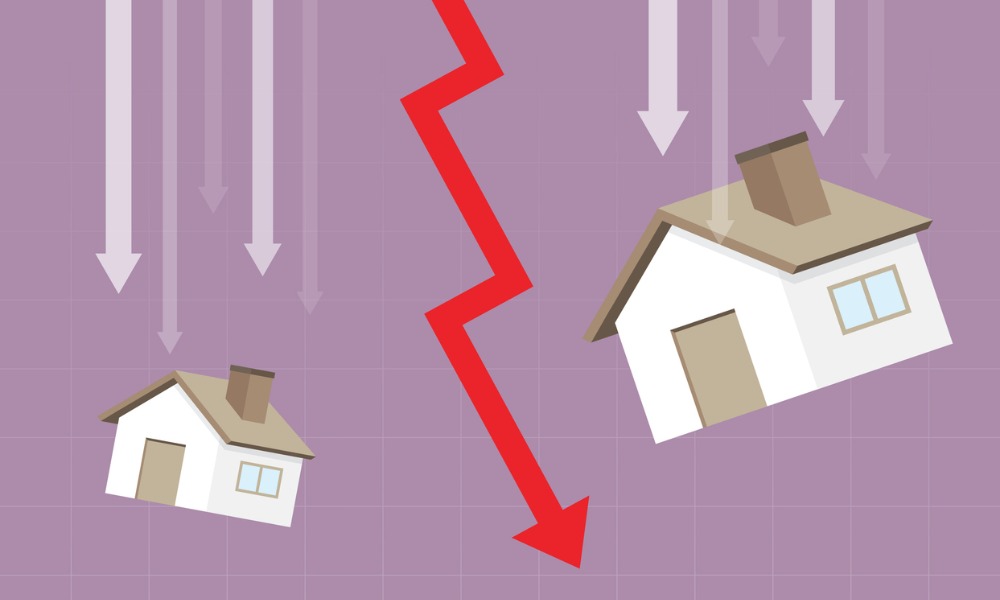The other component CMAs have posted gains month-over-month

A key measure of Canadian house prices has recorded a fourth consecutive monthly decline as two major markets weigh on the national picture.
The Teranet-National Bank Composite House Price Index - a representation of average prices in Canada’s 11 largest metros using publicly available data - was down 0.3% from December to January on a seasonally adjusted basis, but nine of the component CMAs recorded increases, while Vancouver and Toronto recorded decreases.
Before seasonal adjustments, the index fell by 1.6% from December to January, the fifth consecutive monthly decline and the largest since September 2022.
With 12 of the 18 CMAs that are not included in the national composite index also showing increases, the data reflects the strength of demand and lower mortgage rates since October.
On an annual basis, the index was up 2.4% but prices are 3.7% below their April 2022 peak and positive momentum is not guaranteed as, while interest rates may not rise, or more likely fall, an anticipated slowdown in the labour market may dampen buyer sentiment.
The largest gains month-over-month were in Edmonton (+1.4%), Montreal (+1.2%), and Ottawa-Gatineau (+0.6%), while year-over-year gains were led by Halifax at 10.1% followed by Quebec City with a 9.6% gain and Calgary with an 8.6% growth.
The recent Royal LePage House Price Survey published last month revealed that the aggregate price of a home in Canada increased 4.3% year-over-year to $789,500 in the fourth quarter of 2023. However, there was a 1.7% decline during the three month period compared to the previous quarter.



